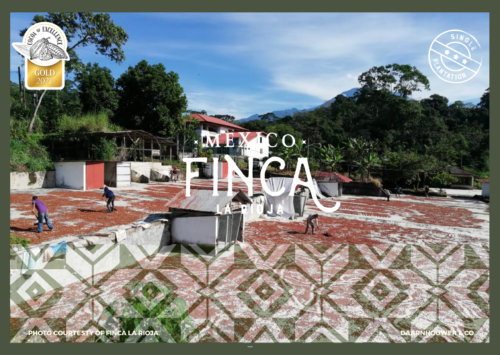When José María Pascacio took over Finca La Rioja from his father more than 15 years ago, he embarked on a journey of ongoing improvement, learning and growth. This labour of love was crowned with a much coveted Gold at the Cacao of Excellence Awards edition of 2021.
Cocoa Beans
-
 After the Portuguese introduced cacao to Principe, this small West African island became the gateway of cacao to the mainland. From Principe, cacao trees were introduced to its sister island of São Tomé and later brought to Ghana. The bittersweet history of cacao on both islands was reflected in the neglect of plantations and crops for many decades. Nowadays, it has regained strength and has become an important source of income for many smallholder farmers who are proud of their contribution to the country's production.
After the Portuguese introduced cacao to Principe, this small West African island became the gateway of cacao to the mainland. From Principe, cacao trees were introduced to its sister island of São Tomé and later brought to Ghana. The bittersweet history of cacao on both islands was reflected in the neglect of plantations and crops for many decades. Nowadays, it has regained strength and has become an important source of income for many smallholder farmers who are proud of their contribution to the country's production. -
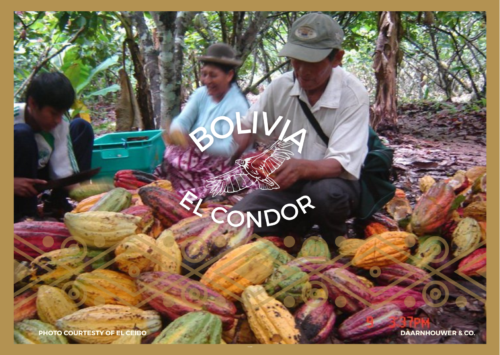 When visiting our partners of El Ceibo, they proudly showed us a small lot of beans they set aside each harvest at their centralized fermentation facility. The cocoa beans were so big we couldn't help but compare them with the giant of the Bolivian Andes - the Andean Condor. Introducing "El Condor" - big in flavour and size!
When visiting our partners of El Ceibo, they proudly showed us a small lot of beans they set aside each harvest at their centralized fermentation facility. The cocoa beans were so big we couldn't help but compare them with the giant of the Bolivian Andes - the Andean Condor. Introducing "El Condor" - big in flavour and size! -
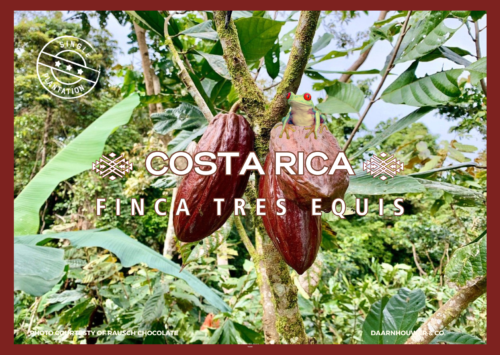 In 2014, Rausch Chocolate established a cacao plantation within the Finca Tres Equis family farm in Turrialba, Costa Rica. The German-Costa Rican team led by Dr. Elsa Hegmann has applied an agroforestry scheme to succesfully regenerate pasture land and transforme the formerly poor soils into a very productive cacao farm grown. The cacao is used for their premium chocolate line. The cacao plantation contributes to the rich biodiversity within and beyond the borders of the Finca.
In 2014, Rausch Chocolate established a cacao plantation within the Finca Tres Equis family farm in Turrialba, Costa Rica. The German-Costa Rican team led by Dr. Elsa Hegmann has applied an agroforestry scheme to succesfully regenerate pasture land and transforme the formerly poor soils into a very productive cacao farm grown. The cacao is used for their premium chocolate line. The cacao plantation contributes to the rich biodiversity within and beyond the borders of the Finca. -
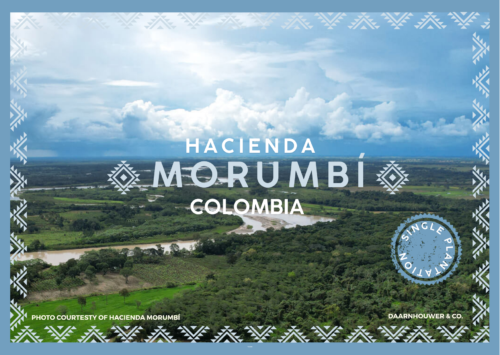 Hacienda Morumbí is a single estate plantation contributing to strengthening the environmental and social conditions of Puerto Lleras in Meta, Colombia. Two thirds of the farm is comprised by protected primary forest. The plantation uses Colombian Trinitario hybrids and applies especially designed protocols for their two cacao mixes.
Hacienda Morumbí is a single estate plantation contributing to strengthening the environmental and social conditions of Puerto Lleras in Meta, Colombia. Two thirds of the farm is comprised by protected primary forest. The plantation uses Colombian Trinitario hybrids and applies especially designed protocols for their two cacao mixes. -
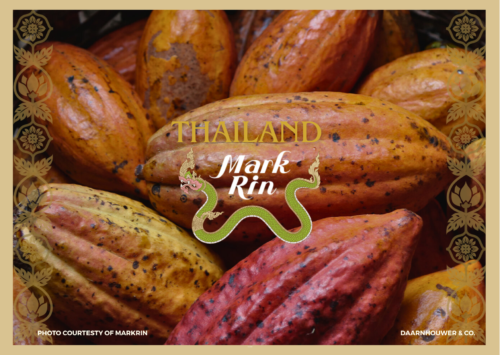 From Chiang Mai with love: MarkRin is a family venture that was born from an agricultural professor's love for cacao. Dr. La-Ongrsi developed a cacao hybrid for Thai weather and soil conditions. After many years of testing and tasting, I.M.1 is found in thousands of farms around all of Thailand. This same cacao is the basis of a beloved and well recognized Thai chocolate brand: MarkRin.
From Chiang Mai with love: MarkRin is a family venture that was born from an agricultural professor's love for cacao. Dr. La-Ongrsi developed a cacao hybrid for Thai weather and soil conditions. After many years of testing and tasting, I.M.1 is found in thousands of farms around all of Thailand. This same cacao is the basis of a beloved and well recognized Thai chocolate brand: MarkRin. -
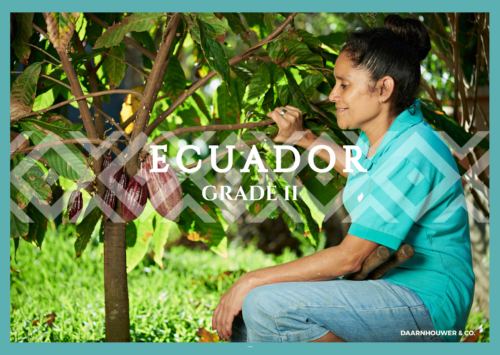 Our Grade II cocoa beans are produced under the social, environmental and economic principles of social enterprise Biocacao. Since 2021, the Ecuadorean government classifies cocoa beans as Grade I, II or III depending on its physical characteristics: size, number of defects, fermentation grade, etc. Click below to learn more about the work of Biocacao with its member farmers.
Our Grade II cocoa beans are produced under the social, environmental and economic principles of social enterprise Biocacao. Since 2021, the Ecuadorean government classifies cocoa beans as Grade I, II or III depending on its physical characteristics: size, number of defects, fermentation grade, etc. Click below to learn more about the work of Biocacao with its member farmers. -
 With an annual cacao harvest averaging around 100-150 tons per year, Jamaica currently exports about 90% of its annual production. Until recently, the beans underwent a "polishing" process that gave them a unique outward appearance. This process is no longer used on the beans but the richness and depth of flavours remains.
With an annual cacao harvest averaging around 100-150 tons per year, Jamaica currently exports about 90% of its annual production. Until recently, the beans underwent a "polishing" process that gave them a unique outward appearance. This process is no longer used on the beans but the richness and depth of flavours remains.

